The Evolution of the Olympic Games
The revival of the Olympics gained momentum with the excavation of ancient Olympia and the establishment of the IOC.
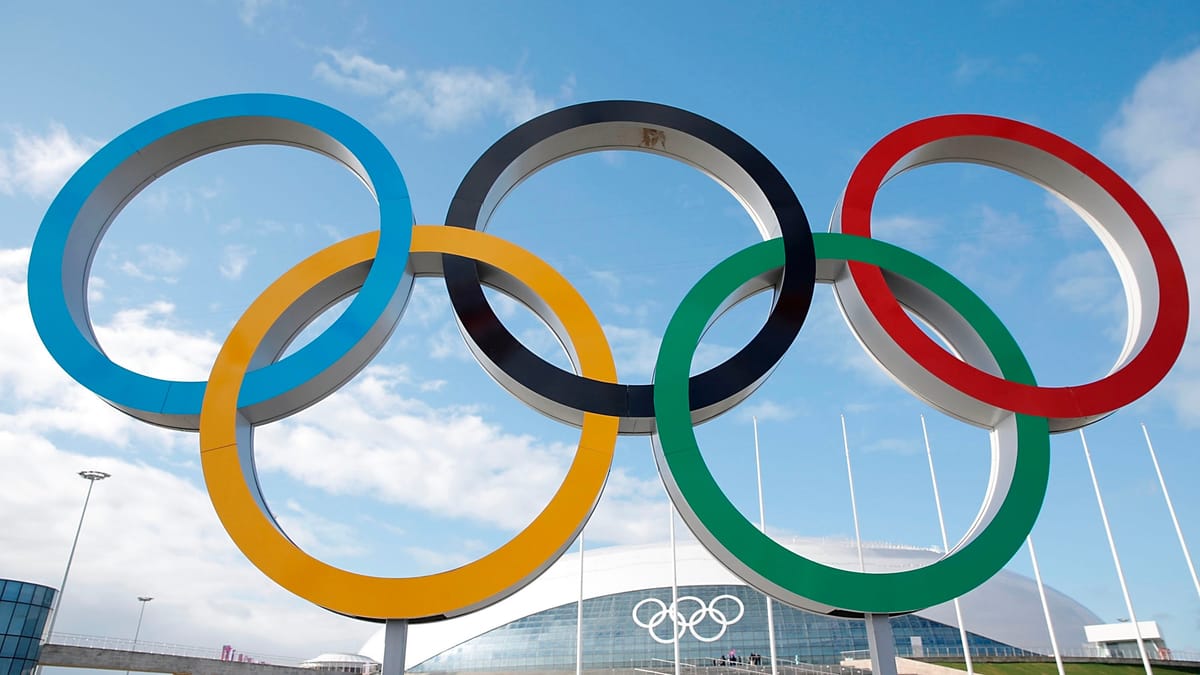
Introduction
The Olympic Games, a symbol of unity and athletic excellence, have a rich history spanning over thousands of years. From their humble beginnings in ancient Greece to the global phenomenon they are today, the Olympics have undergone numerous transformations. In this blog, we'll delve into the origins of the Games, their revival in the modern era, the evolution of Olympic sports, and the significance of Olympic symbols and ceremonies.
The Olympic Games
The Olympic Games, known as The Olympics, are the pinnacle of international athletic competition, occurring every four years in different locations. Originally dating back to around 776 B.C.E. in Olympia, Greece, the ancient Greek games were celebrated for nearly a millennium until 393 C.E. Modern Olympic Games were revived in 1859 by Greek philanthropist Evangelos Zappas and gained momentum with the establishment of the International Olympic Committee (IOC) in 1894. Since the first modern Olympics in 1896 in Athens, participation has expanded globally, turning the event into a significant media spectacle. Despite aspirations for promoting peace and unity through sports, historical challenges like world wars, the Cold War, and commercialism have periodically overshadowed the idealistic goals of the Olympics, yet they continue to inspire human achievement and foster respect across political boundaries.
While the Olympics symbolize human excellence, self-discipline, and cooperation, their history reflects a struggle to maintain the original spirit of international unity amidst geopolitical tensions and commercial interests. Despite periodic setbacks such as cheating scandals and nationalistic fervor, the Games persist as a testament to human achievement and a platform for showcasing athletic prowess on a global scale. The Olympic ideal of transcending political divisions and embodying universal ideals remains a work in progress, with the Games continually evolving to adapt to the changing dynamics of the world stage.
Evolution of the Olympic Movement
The ancient Olympic Games, with roots tracing back to the legendary hero Heracles, were initially held in Olympia, Greece, around 776 B.C.E. These games were deeply intertwined with religious ceremonies honoring Zeus and Pelops and served as a celebration of human athleticism and prowess. Initially featuring a foot race, wrestling, and the pentathlon, the games expanded to include 20 events over several days, with victors revered and immortalized in poems and statues. However, as Roman influence grew and Christianity became dominant, the Olympics faced decline, eventually being outlawed by Emperor Theodosius I in 393 C.E., marking the end of a thousand-year tradition.
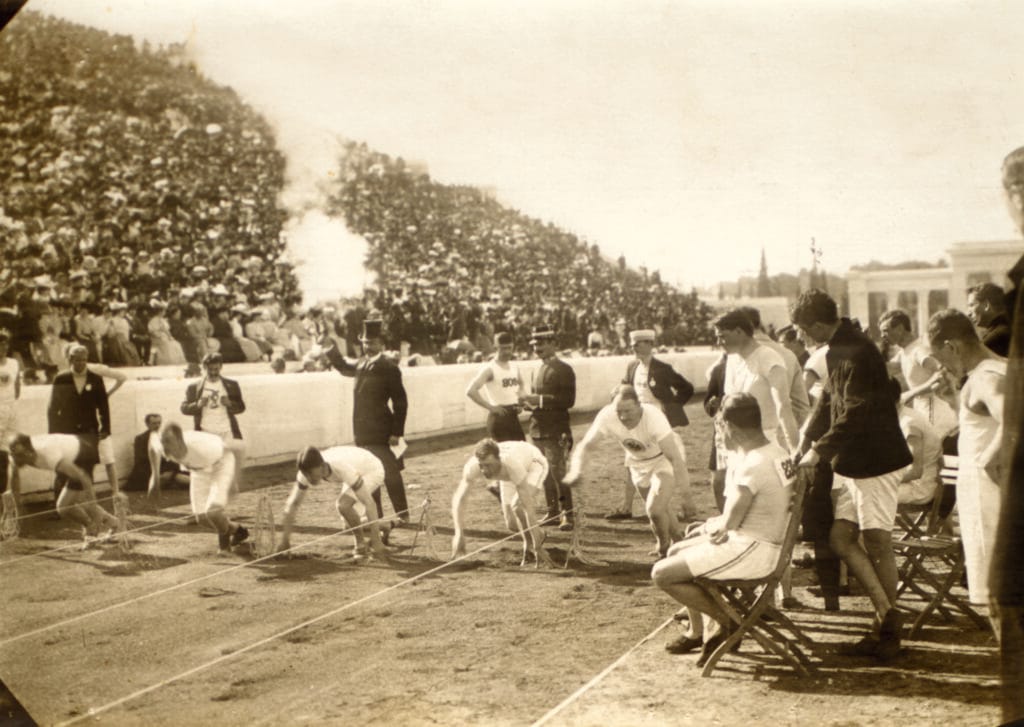
Efforts to revive the Olympic spirit emerged in the seventeenth century with local festivals in England and Greece. In the mid-nineteenth century, Evangelos Zappas and Baron Pierre de Coubertin played pivotal roles in resurrecting the international Olympic Games. Zappas sponsored the refurbishment of the ancient Panathenian stadium in Athens, hosting the first modern international Olympic Games in 1859. De Coubertin later founded the International Olympic Committee (IOC), culminating in the decision to hold the inaugural IOC Olympic Games in Athens in 1896, marking a significant milestone in the revival of the Olympic movement.
The revival of the Olympics gained momentum with the excavation of ancient Olympia and the establishment of the IOC. The first modern Olympics in 1896 showcased less than 250 athletes but marked the largest international sports event of its time. Despite initial enthusiasm in Greece, subsequent Olympic Games were hosted in different locations, including Paris, and saw the inclusion of women athletes for the first time. This revival of the Olympics as an international event reflected a renewed commitment to the ideals of athletic excellence, global unity, and the celebration of human achievement across cultures and genders.
Transformation in Modern Olympic
The modern Olympic Games faced initial struggles after their revival, with events in Paris (1900) and St. Louis (1904) being overshadowed by concurrent World's Fair exhibitions. The 1906 Intercalated Games in Athens, though not officially recognized by the IOC, saw significant international participation, marking a turning point in the Games' popularity. Over the years, the Olympics grew exponentially in size and scope, from 241 participants representing 14 nations in 1896 to over 11,000 competitors from 202 countries at the 2004 Summer Olympics in Athens, highlighting its global appeal and magnitude.
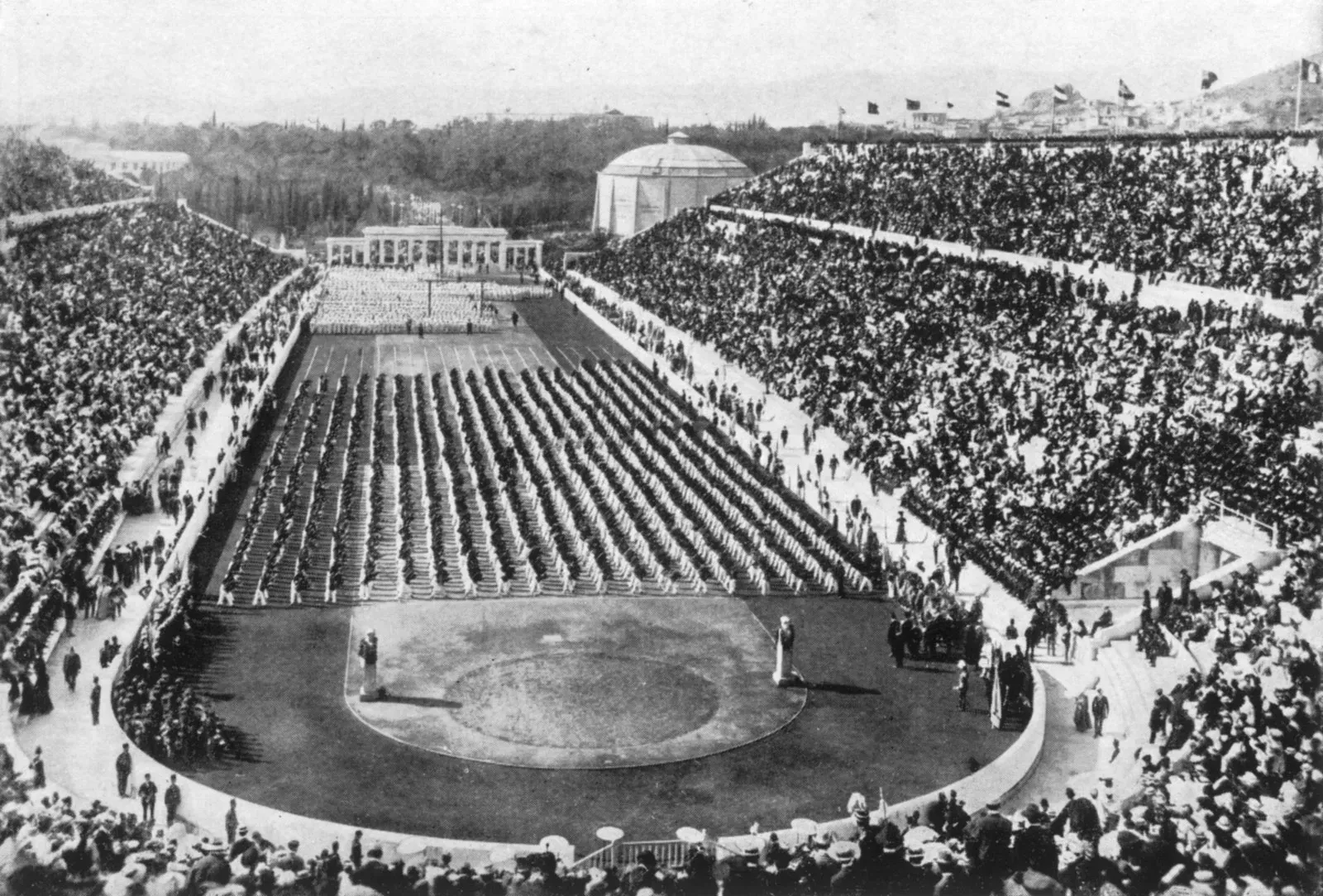
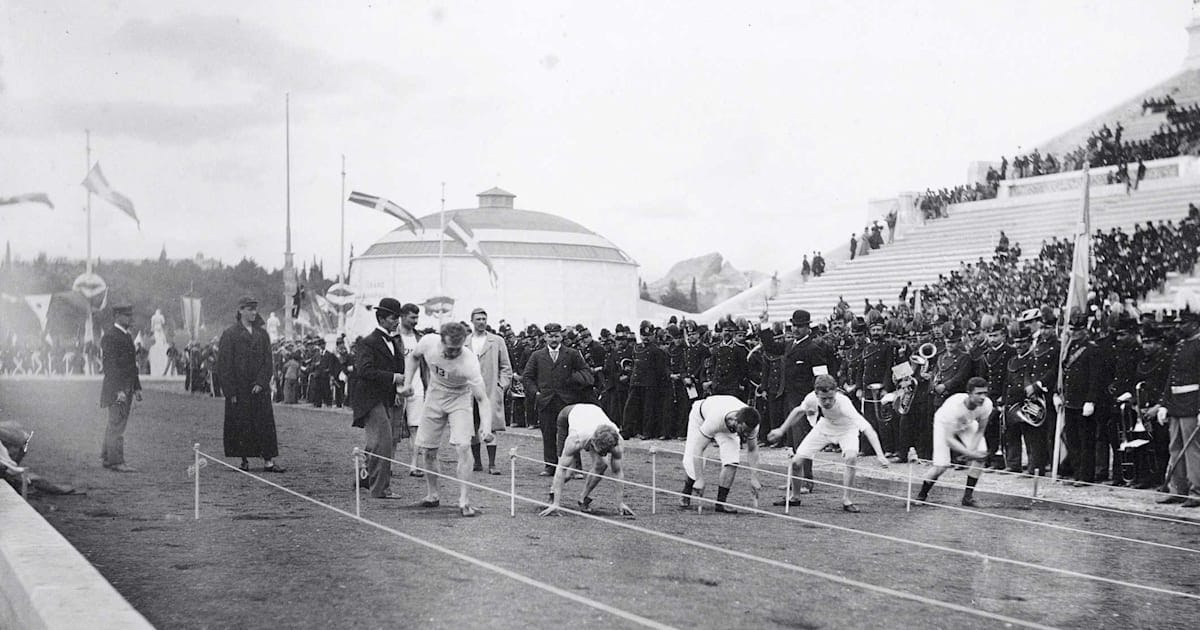
Image: Athens, 1896 Olympic Games(1st Modern Olympic Games)
The Olympics have become one of the largest media events worldwide, with billions of viewers tuning in to watch the games on television. However, the rapid growth of the Olympics has presented challenges for host cities, as organizing the event has become increasingly complex and expensive. Despite financial solutions such as allowing professional athletes and attracting sponsorships, the sheer number of athletes, media personnel, and spectators poses logistical and financial hurdles for host cities, necessitating careful planning and management.
The issue of amateurism versus professionalism has also shaped the Olympics' evolution. Initially, professional athletes were barred from competing, leading to controversies and disqualifications. However, as the outdated amateurism rules became apparent, they were gradually relaxed, with the 1970s seeing the abandonment of amateurism requirements from the Olympic Charter. Today, almost every sport allows professional participation, with only a few exceptions, where restrictions on professional players remain. This shift reflects the changing landscape of sports and the recognition of the need for inclusivity and competitiveness in Olympic competitions.
Diversity of the Olympic Sports
The Olympic program encompasses a diverse array of sports, totaling 40 different sports, 50 plus disciplines, and over 400 events. Initially featuring nine sports in the inaugural modern Olympic Games in 1896, including athletics, cycling, and gymnastics, the program has evolved to include newer sports like snowboarding and beach volleyball to attract younger audiences. However, this expansion has also led to the discontinuation of certain sports like baseball and softball in 2012 due to their declining popularity or high costs. The Olympic Charter mandates a minimum of 15 Olympic sports at each Summer Games, with the IOC also expanding its limits which was programed to a maximum of 28 sports, 301 events, and 10,500 athletes.

The inclusion of Olympic sports is governed by strict rules outlined in the Olympic Charter, requiring a two-thirds vote of the IOC to promote a Recognized Federation to Olympic status. The IOC reviews the Olympic program following each Olympiad, with a simple majority needed for the inclusion of a new sport. Additionally, until 1992, demonstration sports were occasionally featured, providing a platform for sports to reach a wider audience, although winners of these events were not officially recognized as Olympic champions. Some demonstration sports eventually transitioned to become full-medal events within the Olympic program.
Significance of Olympic Medals and Rankings
At the Olympic Games, athletes or teams placing first, second, or third in each event are awarded medals: gold for the winner, silver for the runner-up, and bronze for third place. Initially introduced in 1904, this tradition replaced the earlier practice of awarding medals only to the top two competitors, with additional recognition for fourth to eighth-place finishers added in subsequent years. Olympic medals are highly esteemed by athletes and the public alike, often regarded as more prestigious than championships from other international tournaments. Many athletes achieve hero status in their respective countries upon winning Olympic gold.
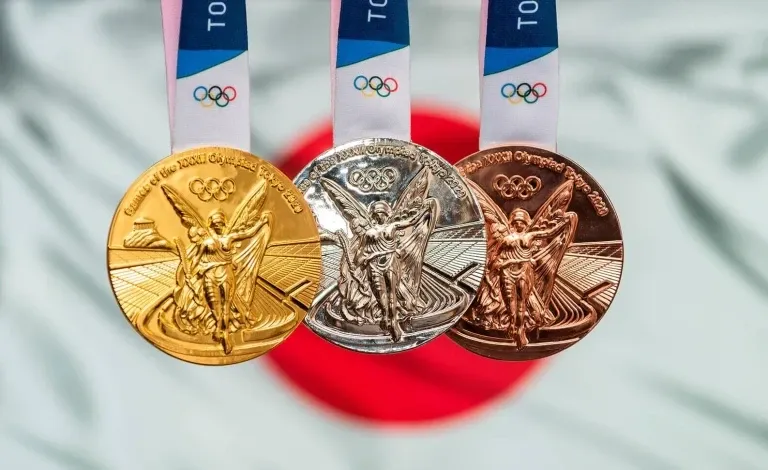
The International Olympic Committee (IOC) ranks countries based on their medal tally, with gold medals holding the highest value. In cases where countries have equal numbers of gold medals, the number of silver and bronze medals is taken into account to determine rankings. This system underscores the significance of Olympic success at the national level, fostering national pride and competition among participating countries.
The Structure and Symbolism of the Olympic Movement
The Olympic Movement is a multifaceted endeavor involving various organizations and individuals dedicated to the organization and celebration of the Olympic Games. At its core is the International Olympic Committee (IOC), responsible for crucial decisions such as selecting host cities and shaping the Olympic program. Supporting the IOC are International Federations (IFs), governing bodies for specific sports; National Olympic Committees (NOCs), regulating the Olympic Movement within each country; and Organizing Committees for the Olympic Games (OCOGs), tasked with the logistics of specific Olympic events. With 206 NOCs and 35 IFs currently involved, these organizations work together to ensure the smooth functioning of the Olympic Movement.
The Olympic Movement utilizes various symbols to represent its ideals and values. Among these symbols, the Olympic Rings stand out, symbolizing the unity of the world's five inhabited continents. Adopted in 1914, the rings are prominently featured on the Olympic Flag, which is hoisted at each celebration of the Games. The official Olympic Motto, "Citius, Altius, Fortius," meaning "Swifter, Higher, Stronger," encapsulates the pursuit of excellence and human achievement. Furthermore, the Olympic Flame, lit in Olympia, Greece, and carried to the host city, serves as a central element in the opening ceremonies, symbolizing the continuity of the Olympic Games.
Integral to the Olympic Movement is the concept of participation and sportsmanship, as reflected in the Olympic Creed. Emphasizing the importance of taking part and the spirit of competition, it underscores the broader significance of the Games beyond mere victory. Additionally, the Olympic mascot, introduced in 1968, represents the cultural heritage of the host country and has become an iconic part of the Games since 1980. With French and English as its official languages, the Olympic Movement transcends borders and languages, fostering global unity through the celebration of sport and human endeavor.
FAQs
In which country were the first Olympic Games held?
The first-ever Olympics was held in Athens, Greece in 1896. Since then, the Olympic Games have been held every four years.
How many games are played at the Olympics?
While the first Olympics had only nine sports, the Tokyo 2020 Games had 33 different sports being played.
What does the Olympic flame symbolize?
The Olympic flame, a powerful symbol, precedes each Olympic Games, carried through the host country via the Torch Relay, beginning months prior to the Games. Inspired by ancient Greek beliefs in fire's divine essence, the modern Olympic flame embodies positive human values associated with fire.
What is the Olympic Motto?
The Olympic motto is ‘Citius-Altius-Fortius’. The three Latin words translate to ‘Faster-Higher-Stronger’ in English.
When is the International Olympic Day celebrated?
It is celebrated on June 23 every year to commemorate the day the IOC was founded in 1894.
Conclusion
The Olympic Games have come a long way since their ancient origins, evolving into a global phenomenon that transcends borders and cultures. From the sacred rituals of ancient Greece to the modern spectacle watched by billions, the Olympics continue to captivate and inspire. As we look to the future, the Olympic Movement remains committed to its founding principles of excellence, friendship, and respect, ensuring that the spirit of the Games endures for generations to come.
In conclusion, the Olympic Games represent far more than just athletic competition; they embody the values of unity, diversity, and human achievement. As we celebrate the triumphs of athletes from around the world, let us also reflect on the enduring legacy of the Olympics and the profound impact they have on society.





